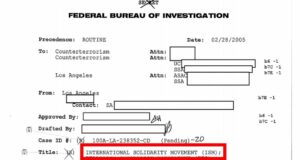Afua Hirsch | The Guardian
7 June 2009
Retailers including UK supermarkets may be at risk of prosecution for misleading consumers by selling goods from the Palestinian Territories under the label “West Bank”, lawyers have warned.
Fruit, wine and cosmetics originating from illegal Israeli settlements are among the goods that lawyers representing Palestinian interests argue are regularly being wrongly labelled, so that buyers might conclude they are actually produced by Palestinians. In a separate issue, they say illegal settlements are also wrongly benefiting from preferential trade agreements with Israel, which are meant only for goods from inside its pre-1967 borders.
“The use of the expression ‘West Bank’ may in many cases fail to give the consumer the full picture,” said barrister Kieron Beal from Matrix Chambers. He added that in other cases, “where goods have come from the occupied Palestinian Territories they should not be labelled as having their place of origin as Israel”.
The warnings come as government proposals for implementing new EU rules on product labelling, which make it illegal to deceive consumers, are expected within a month. Departments including the Office of Fair Trading, the Department for Environment, Food and Rural Affairs, and HM Revenue and Customs (HMRC) have been grappling with the issue. Under UK law it is already illegal to present food products in a way which is “likely to mislead”, while European rules include strict measures requiring accurate “country of origin” information to be given.
Concerns about consumers being misled have been compounded by claims that Israeli exporters have benefited from preferential trading terms that allow goods from inside Israel’s pre-1967 borders exemption from import duties.
“It is a breach of the agreement for settlement goods to be imported as Israeli products getting preferential tariffs,” said Liberal Democrat MEP Sarah Ludford. “The labelling of herbs sold as ‘West Bank’ [for example] seems to me such an abuse. It is up to UK customs authorities to enforce the origin rules.”
“[Officials] should consider referring the matter to the anti-fraud office of the European commission,” said Sarah Macsherry, a lawyer at Christian Khan solicitors and member of Lawyers for Palestinian Human Rights, a UK-based group.
HMRC denied that goods from the Palestinian Territories could take advantage of the system. “Any claim to Israeli preference which is accompanied by a proof of preferential origin indicating production [in a location] brought under Israeli administration since 1967 is immediately refused,” a spokesman said.
But officials are concerned about the issue. “The department is aware … that the location shown on the proof of origin may be that of a head office in Israel, when the goods concerned may have originated in a settlement,” HMRC said.
 International Solidarity Movement Nonviolence. Justice. Freedom.
International Solidarity Movement Nonviolence. Justice. Freedom.


